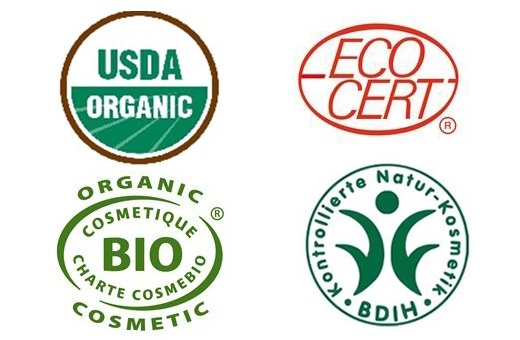Some people may not yet be familiar with organic cosmetic products. However, to anyone with moderate interest in cosmetic products or skin aesthetics, organic cosmetics may already be a familiar part of their skin care routine. Organic cosmetics has become one of the most prominent areas of the cosmetics industry today.
To briefly define the term ‘organic cosmetics,’ it refers to cosmetic products made from combining natural ingredients that were organically produced or extracted. They used to be also known as natural cosmetics, herbal cosmetics or oriental cosmetics. Lately, the term ‘organic’ seems to have taken over the market although the above synonyms are still in use.

In Europe, the interest in organic cosmetics began in the 1980s. In the 90s, guidelines and regulations regarding organic cosmetic products were established in each country. Lately, common guidelines across Europe were promulgated. In Korea, the Ministry of Food and Drug Safety (MFDS) announced guidelines on organic cosmetic products in 2010. In 2015, Korean guidelines will adopt COSMOS, which are new certification standards for cosmetic products.
The guidelines for organic cosmetics announced by the MFDS are as follows.
[Advertisement] A-One LITE(Facial Diagnosys System) – Manufacturer: BOMTECH(www.bomtech.net)
Organic cosmetic products contain natural ingredients such as rosemary extract, lavender extract, peppermint leaf extract, eucalyptus leaf extract, and menthe spicata flower extract, etc. Organic cream or lotion products should be composed of at least 95% of organic ingredients. Oil products should have at least 70% of their ingredients naturally derived after excluding water and salt content.
Safety standards for ingredients derived from sea plants have not been established yet.
The key objective and benefit of organic cosmetic products is that they promote skin health by the actions of natural substances and exclude harmful artificial chemicals. Organic cosmetic products are manufactured by organic processing methods and contain naturally derived ingredients. They help restore the natural functions and health of the skin. They have the added benefit of being more environment friendly.
The main interest and goal of Korea’s organic cosmetics is to promote the natural health of the skin. The industry strives to free the human skin from exposure to artificial chemicals and nourish the skin with natural substances. On the contrary, in Europe, the concept of organic cosmetics started from the efforts of environment conservation and animal protection. In this regard, their attitude towards organic cosmetics is slightly different from ours.
- to be continued -





















